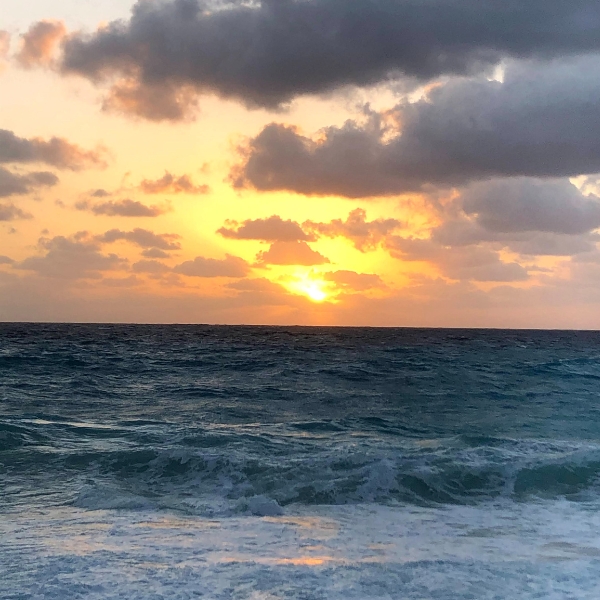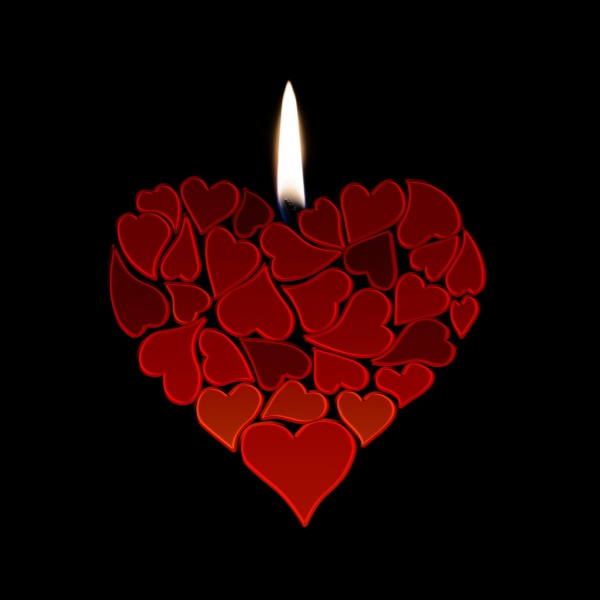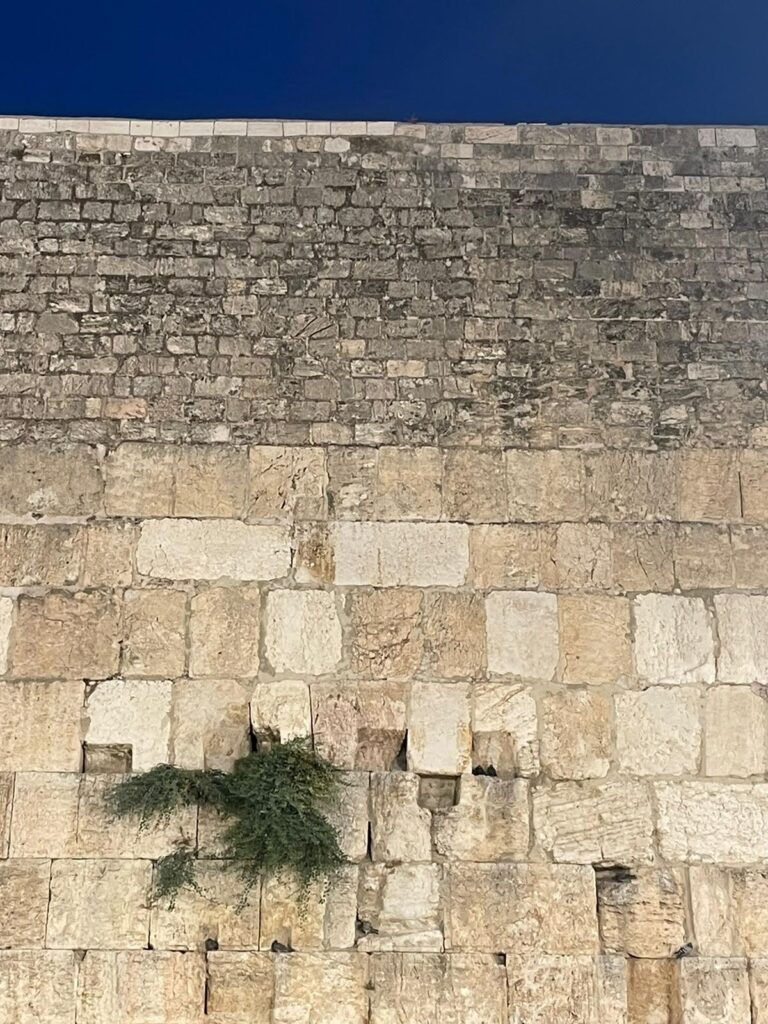Almost every day after school, I walk home down Tony Avenue. It is not the fastest way, but with all the big, leafy trees, it’s the prettiest. And quietest. Today, like most June afternoons in the Valley, it’s crazy hot. But under the trees, it’s fine, more than fine; I wish my house was further away, because I have so much to say. I’m not sure how this became a thing, but something about Arlene Nelson’s ridiculous books about the Greek gods got me thinking: maybe there really is Someone out there, up there, wherever. Not some man with a white beard and a robe, but Someone who cares, who listens, who made me. Otherwise, what’s the point?
One afternoon back in fourth grade, I kept thinking about dying, and my parents dying, and everyone dying, and, if everyone is just here and dies, and it’s like, over, what’s the point? I had this horrible pit in my stomach when I managed to get the question out of my throat. Mom paused for a while, then said something weird about G-d being a spark inside of you. The pit in my stomach felt only slightly better as she turned back to cutting vegetables.
I walk slower; as soon as the car drives by and I check that no one is coming toward me on the sidewalk, I dare open my mouth. I’m nervous for junior high…a whole new school, and I have good friends now, but I don’t know one kid going to Hale. Everything’s going to be different, it’s so big…and my hair never feathers back the right way, and I gotta get braces this summer…I’m going to look like a nerd, I know it. I look up at the trees as a rustle goes through their leaves. Is that a sign? Please help it go good, if You can, G-d. If You are there, and if You are You, You can do anything, right? Even for me? Who doesn’t even know if you are there? The rustling grows louder and my hair lifts away from my cheeks, and I feel the faintest smile on my lips.
Women stand beside me, in front of me, behind me, their voices rising and falling. Here and there a cry, a moan, a joyful smattering of Hebrew, Hodu LShem Ki Tov. I reach forward, between the blonde lady’s shoulder and the old woman’s, for the tiniest bit of Wall. My fingers stroke the cool stone, smoothed by thousands of hands. I hold my hand there and wait, as soon as the blonde moves back, I lurch forward and press my cheek flush against the Wall. Hashem, it is so, so, so incredible to be here. I can’t believe how lucky I am. No, not lucky. I am blessed! No such thing as luck. Baruch Hashem! I can say that right to You!
Flipping the pages of my new Artscroll Siddur, I search for the afternoon prayer. I just bought it at the Old City bookstore, and at the same time, found the cutest, dark green velvet wall hanging, embroidered with the word mizrach. The store owner said that means ‘east,’ because when we pray, we face east, face Jerusalem.
After a couple of minutes of searching the siddur in vain, I jump back to the familiar, my own little conversation with G-d, which I just learned is actually called something: hidbodedut! The tall rabbi with the black beard said it’s fine to talk to G-d that way, but it’s also important to get familiar with the siddur. I’m trying, but the morning service is so long, and just about all the Hebrew I know is from two songs: Oseh shalom bimromav hu ya’aseh shalom and, Hinei ma’tov u’manayim.
Thank you for bringing me and Maya to Israel. Thank you that we made it back after that hectic week in Greece… I love walking through the rovah at night and being Jewish and the bus drivers are Jewish, and the store owners and the Heritage House was cool. I love this program. I love the girls and Sara Yocheved Rigler and the rabbi is funny and super smart. I love his kids – so many kids! and his sweet wife. I want to stay for at least six months. But Grandma is the hospital. Mom says this time it’s bad. I should go see her, but I am in love love love. Please make her better, Hashem. Even though it’s serious, You can heal her. When would I be able to come back, if ever? I shut my eyes and listen to the women’s prayers mixing and soaring with mine.
I’ve managed to fit my ceiling-high, green baker’s rack into my teeny kitchen/dining room of my apartment. It’s stuffed with cookbooks, writing books, novels, random mugs, and benschers from the most recent weddings. On the top shelf is my CD player, and the cutest little plant my mom gave me from the house.
As I pray, in a mixture of Hebrew and English, I try not to check the clock. It’s already taken me twenty minutes and I’m only holding by Shema. Looks like breakfast in the car again.
When I take three steps forward for Shemonei Esrai, I reach out for the stones but instead feel the green velvet of the wall hanging I’ve brought back from Yerushalayim. My heart contracts as I remember how far away I am.
I stand with my feet perfectly together, bow at all the right times, and remember to use Hashem’s Name instead of “Hashem,” when I say the brochos. Before taking three steps back, I slip in: Hashem, about this date tonight…I cannot deal with another ridiculous suggestion! I need my true zivug. And so does Rebecca, and Carrie, and Maya…please, we want to build our homes! And I want to go back, I really do. Thank you for this great community, this adorable apartment, for my job, for my new friends…Oh, and thank you, Baruch Hashem, for my adorable nephew, David. They gave him the Hebrew name, Dovid Michoel…so beautiful.
I squeeze the double-stroller handle as tight as I can as I bounce it down the stairs outside of building 119 in Maalot Dafna. Moshe Yosef giggles and Chana stretches out her arm to make sure he stays in place. I am back! No, we are back! The words of Hallel come to mind, and I make up a tune on the spot and sing softly, Zeh ha yom asah Hashem, nigilah v’nismacha bo! I repeat it, over and over, and as we reach Rehov Shmuel HaNavi, I turn left toward the produce shop. Please Hashem, help me get the bags up all these steps, and please help that Moshe doesn’t have a tantrum in the store because he can’t eat a raw potato. And maybe that woman won’t be there, who speaks so fast I have no idea what she says.
Oh, no, and I’ve forgotten how to say eggplant, again.
“Mommyyyyyyy!” Chana whines, pointing across the street to the swings. “We go to park! Yes?” Moshe Yosef kicks his legs, so hard to stroller shakes.
I whisper, Hashem, let them forget about the park, I don’t have time today!! Hashem, what do I do? I need an…
Oh, that’s it!
“Kinderlach, let’s go to the store and get some yummy grapes, sound good?! And when we get back to the apartment, we’ll…blow bubbles!”
Chana cries, “Yay!!”
Moshe Yosef looks up at me, with a wide, toothless grin, which I take for a “yay,” and I walk on.
I look up and give Him a wink, and, figuring it’s unlikely I’ll have any time to daven later, whisper Thank you, Hashem. You always take care of me.
The boys are munching their cereal and drinking from sippy cups when I choose to ignore the orange juice spill on the table and nod to Chana. She nods back, and flashes me a knowing grin before I rush to the dining room.
When we saw the house, I knew the far corner, in front of the large, east facing windows, would be my spot.
The sun peeks out above the two-story house across the street as I open my white leather, Hebrew siddur. Before I can locate the page, I’m halfway through birchos hashachar.
Two minutes later, Chana and Moshe Yosef’s voices come from the next room. Already? I sway in front of the window, the green mizrach sign just to my left. For now, I’ve pressed it against the wall above the empty bookcase.
“Where’s Mommy?” Moshe says. “I want egg!”
Yaakov parrots, “Mommy? Where? Mommy?”
My palms turn damp as I run through the options. Jump to Shemonei Esrai? Abbreviated Pesuki d’zimrah, then a quick Shema? Just Shema? (Where did I put Rigshei Lev?) I glance behind me at the half-filled bookshelves; the rest are still buried in boxes along the edges of the room.
Chana shushes them, then puts on her big girl voice, “Boys, let’s all sit on the couch together and read a book. You like the truck book, with the diggers?”
Good girl, sweet girl.
“Mommy?!” Moshe’s voice rises. I flip through the pages and move closer to the still-uncovered window, trying to disappear into the pane of glass. I reach my hand out to the woman staring back at me, with puffy eyes and a tichel that’s seen better days. I mutter Baruch She’amar, Ashrei and Yishtabach, then drop into a chair. Let me just say Shema, please Hashem.
After the brachos, I burrow my eyes into the darkness of my hand and feel like going back to sleep. I think of yichud Hashem for maybe two seconds, before something crashes and Emunah Chaya cries. “Boys, don’t throw blocks at each other!”
I squeeze my eyes tight, mumble the Shema, then wait. Another cry, then another, louder and insistent. I give my siddur a kiss and place it on the shelf, then hurry down the hall to the baby’s room.
I stare for many minutes at the whitewash of beauty crashing on the sand and the far away, blue horizon before I speak. I don’t know where to begin, so I just let the words fall… Hashem, it’s a new year. There is so much I want for my husband, my children, and me. You know how much help we all need. I want to trust You, to be close to You. Am I doing everything I can? For my children, my parents, my husband? So many challenges, yes, there are good times, too… but it hurts…
The waves roar up to the beach, a symphony much louder than I remember, if I want to hear my voice I can’t whisper. Emunah stands frozen at the shoreline, watching the water swirl around her bare feet. Yaakov jumps, spins, then plummets onto the sand. They laugh, grab hands and carefully, go a few steps further.
I close my eyes and listen to them laugh. It’s so great to see them happy. I want to be happy, to be content with all that you give us. I want bitachon… The tears fall. Emunah and Yaakov are too far away to hear, and anyway, the crashing waves obscure my cries.
A few minutes pass, and I wipe my cheeks and just sit, soaking in the sun on my face. I know it’s good, it’s all good. This sun feels good, this beach is so beautiful, this year…this year will be good, I know this is the year Rebecca will get married. Please Hashem. And Adina, she so wants a baby! And…and…and…Thank you, for making me a mother, even with the challenges, I’m so grateful. I have children. I have a husband. So much good. So much good. This year, let me soak it in. I want to feel it. All the time, every second.
I get up while it’s still dark and sneak into the kitchen for coffee, careful not to wake the girls or disturb my husband and son learning in the dining room. I tiptoe back into my room, shut the door, and huddle under a blanket in the armchair. The first sip is divine, as always, and I smile up at the mizrach sign dangling from the edge of my dresser drawer, before reality hits me, yet again. Alone and without wearing a mask, the words come out so insistent they surprise me.
Hashem, this is so crazy…what’s happening? What does this mean? I take a long swallow of coffee. The whole world is falling apart. But we have You. I’m so grateful to have you. To know that this is from You. Footsteps in the hallway. I close my mouth as the bathroom door closes — Yaakov. Funny how you can tell which kid it is by the way a door closes. The shower runs. Hashem, we’re locked in, but together. Baruch Hashem, we had it and got better. We aren’t alone. I think of my mother-in-law, my parents, my single friends, my widowed neighbor, a Holocaust survivor, more hunched over then ever.
Ten minutes later, the bathroom door opens. My sons’ and husband’s voices rise from the front of the house, where they face the east windows in tallis and tefillin. Though I can’t hear their words, I find a deep comfort in the Hebrew sounds.
I set my cup on the nightstand, slip on proper shoes and a pair of earrings. I pick up my brand-new, leatherbound Artscroll Siddur. More than ever, I want to know what I’m saying. After birchas haTorah and birchas haShachar, I turn to page 34. I have just started saying the Ketores, the incense offering. This, we are told, will help wipe out the plague.
I get there at 5 am, or 5:30, or sometimes 6:30, depending on how I’ve slept. No one cares but me: I just want to be in the kitchen by 7:30, when my husband gets home from shul and Emunah has to get ready for high school.
I also want to start early so I don’t need to rush. Especially since October 7th.
As the birds begin to chirp and the sky lightens, I open my new Pathway to Prayer Daily Siddur and rest it on my shtender, surrounded by the windows my husband installed himself when we moved in fifteen years ago, transforming this cavernous storage room into our kids’ bright playroom.
Today, the remaining toys are stashed in buckets under the deep shelf; the top of which was once white; now it’s a rainbow, splashed haphazardly from watercolors, acrylics, and glitter glue. The shelf houses my printer, a ream of paper, and extra toner.
I stand in the center of the room — on one side is my yoga mat, and treadmill. On the other side is the desk where I sit right now, writing these words, and beside it, a glass table with books I’m reading and learning, framed photos from the bar mitzvahs, and my laptop.
Before I begin, I study the sign that has been tacked to the bookshelf at eye level for the past nine months:
I AM AT WAR
DAVEN SHTARK
YOU ARE A SOLDIER
THIS IS YOUR BATTLEFIELD
4 KLAL YISROEL
I stand, sit, stand, then sit again. When I find myself mumbling, I think, Come on, say the words out loud, with a kol, no one needs you, you have plenty of time. Only Hashem can hear you. When that doesn’t work, I think, Remember, daven slow, like you are counting money! When I find myself staring at my velvet mizrach hanging from the east wall, I let myself remember Maalot Dafna, the rovah, and the Wall, before I force my eyes back to the page.
Some days I still mumble. Some days I forget my sign until I am making my husband’s lunch.
But some days I sing when I say mizmor l’sodah. Some days I recommit to my avodas Hashem when I say ‘Zeh Keli V’Anvehu.” Some days I remember to imagine I am standing in the Beis HaMikdash.
Some days I bawl after elokei netzor as I thank Hashem that Chana just got married, daven for my boys hatzlacha in yeshiva, for my daughter going through all the drama of teenage hood. Then I glance at my sign and whisper, Please Hashem, bring every single hostage home safely, protect the soldiers, protect my nephew, David (Dovid Michoel ben Liora), serving in the North…things are heating up…protect all klal Yisroel in Eretz Yisroel and throughout the world. Heal all those who are physically and emotionally ill. Bring back the lost children. Bring back all the Jews who don’t even know you, like I used to not know you.
I think back to then, over three decades ago, when I didn’t know Who I was talking to, or if He was there. Yet, even in fourth grade, some part of me did know.
You were there, always there. On the way home from school, in the Old City, in the apartments, at the beach, in the darkness of Covid, in the joy of our daughter’s wedding, and right now, in this chasm of uncertainty.
Oh, Hashem, Hashem, Hashem! I am so grateful, that I have You. My Best Friend, my King, my Father.
Grateful, it sounds so small. No. It’s not enough.
There is no word. What can I say?
So I close my mouth as the tears fall. I stand there, cheeks wet, soul soaring, until it is time to step back.


